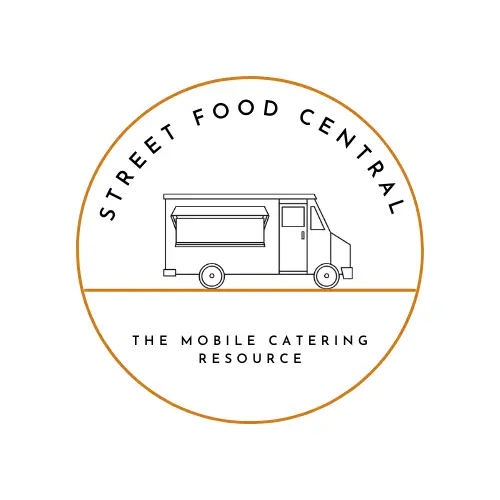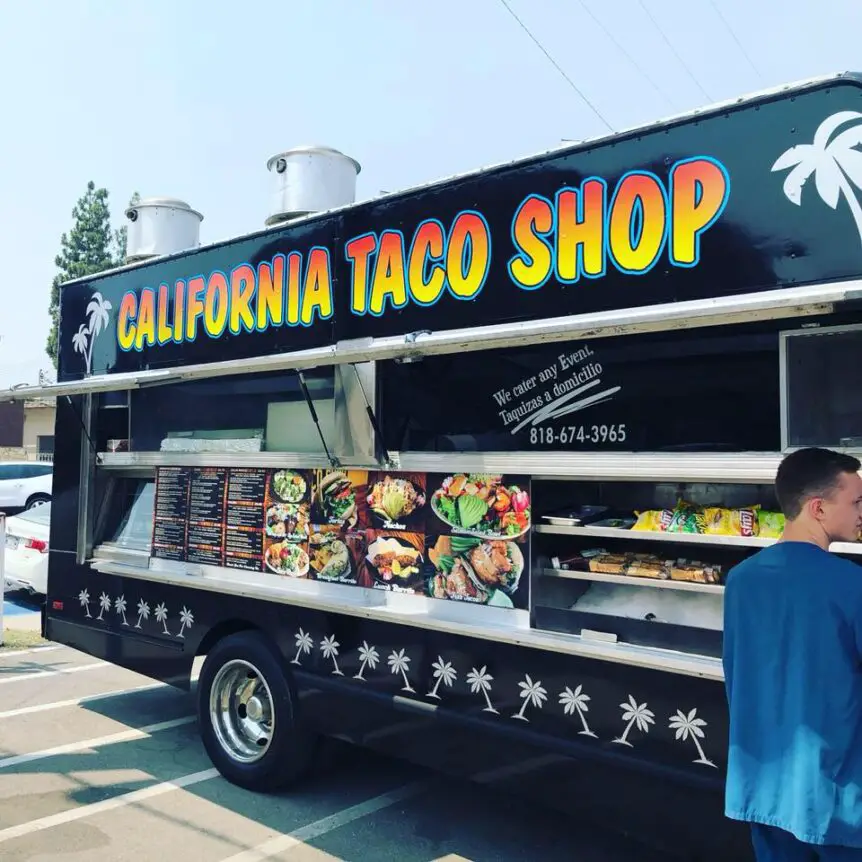See all the licenses and permits you need to operate a food truck legally in the state of California

For most people, the worst part about starting a food truck business is navigating all the types of licenses, permits, and insurance needed to operate legally. And this can be especially overwhelming when you have to navigate federal, state, and local regulations at the same time.
So if you have landed on this article you may be wondering what licenses and permits you need to start a food truck in California?
To operate a food truck in California you need to choose your business structure, register with the IRS at the federal and state levels, and obtain a Business Licence. You then need to get a Food Handlers Permit and Sellers Permit and contact your local city authority for a food truck inspection to obtain a Public Health Permit.
There are also a number of other things you need to do such as having the correct driving license and commercial insurance in place.
In this article, I will take through the process, step by step, of getting all the food truck licenses and permits needed to operate in California legally.
Contents:
- Business structure
- Taxes
- Business License
- Sellers Permit
- Food handlers permit
- Food truck inspection
- Public health permit
- Driving License
- Insurance
- Key takeaways
1. Business structure
The first step is choosing a name for your company and checking that the name you want isn’t taken. You can do this here at the California Secretary of State.
You then need to choose how you want to structure your food truck business, which will enable you to get a business license and register for the right tax code. There are a number of ways you can do this, each with its own requirements.
A Sole Proprietor is the simplest form of a business entity where you can operate under your own name or register with your local clerk’s office for an “Assumed Name Certificate” (DBA) which is a certificate that lets you trade under an assumed company name. You need to register with the county clerk in the state where you are located.
Other business structures exist such as corporations, Limited Liability Companies, Limited Partnerships, or Limited Liability Partnerships which are a little more complex to set up. If you are thinking about going with any of these options then you will need to register your food truck business with the California Secretary of State.
Helpful resources:
Cost:
- Assumed Name Certificate – $42 + $5 for each business owner’s name
- Limited Company registration fee – $80 + £20 filing fee
Related articles:
2. Taxes
Federal level
Once you have chosen a structure you need to register your food truck business at the federal level with the IRS to pay the correct taxes.
If you don’t intend to employ any staff and you want to operate your food truck as a sole proprietor or independent contractor then you can register with the IRS as self-employed and use your social security number for social security and medicare tax purposes.
If on the other hand, there are more people involved in your food truck business and/or you intend to employ staff then you will need to apply to the IRS for an “Employer’s Identification Number” (EIN number). This is a number assigned to every business so it can easily be identified by the IRS for taxation, which you will also need to open a business bank account.
State Level
At the state level, if you intend to operate as a sole proprietor then you will need to pay state taxes as an individual, by filling out a 540 income tax return. This can be done here at the State of California Franchise Board.
If on the other hand, you intend to structure your food truck business as an LLC then you will need to pay an annual franchise tax of $800 on top of the current Sales tax. More information can be found here at the State of California Franchise Board.
Cost:
- EIN – Free
Helpful resources:
3. Business Licence
After you have decided on the structure and registered your food truck business it is time to apply for a business license. All food trucks must obtain a general Californian Business License to operate legally, which can be done by contacting the city authorities in which you want to operate.
Helpful resources:
4. Sellers Permit
A Seller’s Permit is required by all businesses in the state of California that engage in the sale of tangible goods. This includes food trucks and other types of mobile food units that buy raw ingredients at wholesale prices, make them into finished hot food products and resell them at retail prices for a profit.
The tax on these sales is then collected after the sale by paying sales tax on things like hot and cold food products.
You can apply for a Sellers Permit here by visiting the California Department of Tax & Fees Administration.
Cost:
- Californian Sellers Permit – Free
5. Food Handler’s permit
As part of California state Senate Bill No. 602 all employees that process and handle food, including employees of food trucks, must obtain a food handler card, (also known as food handlers permit or food safety certificate).
This can be obtained by taking a food handlers course which trains managers and employees in food safety practices such as safe prepping, cooking, and storage.
Information on approved training providers can be found on the Food and Drug Section of the California Department of Public Health website.
Cost:
- California food handlers course – $7 – 10
Helpful resources:
Related articles:
6. Food truck inspection
Per the California Retail Food Code, all food trucks must have an inspection by the relevant authorities before they are able to serve food to the public.
This is to ensure the mobile food unit is fit for purpose and complies with all the state and county retail food regulations that are there to protect the public.
As part of the inspection, you may need a separate kitchen (known as a commissary unit), away from your main mobile unit where you prep and cook food, refill and empty clean and dirty water tanks, and for general cleaning.
If you are using a gas supply and equipment such as propane bottles and fryers in your food truck you may also need an additional fire safety inspection by your local city’s Fire Department.
It’s worth contacting your local public health department to see if a separate fire and commissary unit inspection is needed as part of the approval process.
Helpful resources:
7. Public Health Permit
Once you have obtained your food handlers card and passed the food truck inspections by the local county public health department and fire department you will be awarded a Public Health permit.
This is a certificate that shows you have all the processes in place to operate safely and legally in selling food to the public.

Helpful resources:
8. Driving License
Aside from the licences and permits, you need to operate in California you will also need the right driving license to drive your food truck from A to B. This is especially important if you employ staff, who as part of their role is to drive the truck.
According to the food truck builders M&R Speciality Trailers and Trucks, you should be able to drive a food truck with a Standard Class D driver’s license if your food truck weighs less than 26001 pounds. It’s worth noting that most food trucks have a typical weight of 1200-1600 pounds so this should suffice.
However, if your food truck exceeds a gross weight limit of 26001 pounds then you will need something called a CDL license. This is a commercial driver’s license used for driving large and heavy trucks.
For more information, it’s worth contacting the State of California DMV
Helpful resources:
Related articles:
9. Insurance
To make sure you are in good legal standing and have protection for your food truck business Insurance is another important part of operating.
To drive a food truck in California it is mandatory by law to purchase Commercial General Liability, which protects you against bodily injury and property damage and if you intend to employ staff Workers’ Compensation insurance, which replaces wages and covers medical expenses as a result of an injury at work.
Cost:
- Wide-ranging as it is dependent on claims history and the type of coverage.
Helpful resources:
Related articles:
Key takeaway
Getting all the licenses and permits to operate a food truck in California can be a bit overwhelming when you have to navigate both federal, state, and local regulations.
However, once you get the first couple of steps right like choosing your business structure and registering with the IRS to pay taxes the rest can be easier, especially when you have a roadmap of the steps you need to take.
So here’s a summary of the licenses and permits you need to operate a food truck in California legally:
- Step 1: Choose a business structure & register with the IRS at the federal and state level
- Step 2: Get a general California state Business License
- Step 3: Get a food handlers permit
- Step 4: Get a Seller Permit
- Step 5: Arrange a food truck inspection (check with your local county to see if you need a fire inspection)
- Step 6: Get a public health permit (given after inspection)
- Step 7: Check your driving License
- Step 8. Get Commercial Insurance
Gavin D is the founder of Street Food Central and Tru Foo Juice Bar Co. and has worked in the mobile catering industry for over 7 years.

